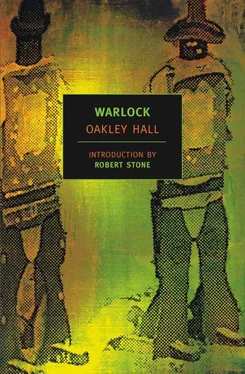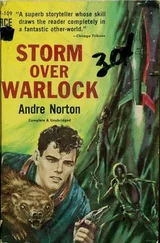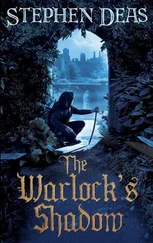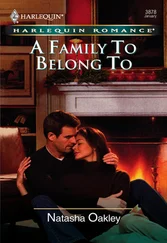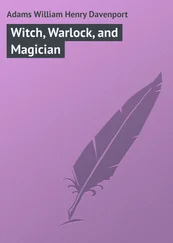All crowded outside to fire after him in his flight, but pursuit was impossible, for he had unhitched the horses and these were stampeded by the shooting. By the time the mounts were recovered it was clearly useless to try to follow him, and some were afraid that Gannon had been accompanied by a whole party of murderers from Warlock, and that he desired to be pursued so that he could lead the Cowboys into an ambush. There is no doubt in Lacey’s mind that Gannon was the assassin, for, although he did not see him himself, a number of others did.
The funeral party arrived not two hours ago. It was well known that the Regulators were coming, since they could be seen a long way off from the rim. Gannon had deputized, without the difficulty some had foreseen, more than twenty good men, whom he had stationed up and down Main Street and on the rooftops. He rode out alone to meet the Regulators and their funeral wagon as they came up the rim. I have not heard what transpired there, and am surprised they did not shoot him down on the spot, but he immediately returned to the jail and surrendered himself to Judge Holloway. He is to have a hearing shortly and will have another chance to appear and swear before the judge, this time not as a witness but as a defendant; Ike McQuown being plaintiff, a curious role for him.
This turn of events has staggered us all.
JUDGE HOLLOWAY poked right and left with his crutch to clear a path for himself through the jail doorway. “Out of my way! Out of my way, damn you, boys!”
Inside, he glanced worriedly at Gannon, who leaned against the cell door looking listless, exhausted, and profoundly dejected. The judge glared around at Skinner, Bacon, Mosbie, and the others inside the jail. “Turn that table around for me,” he said.
It was done and the judge sat down with his back to the door. His crutch fell with a clatter as he moved his chair, and, grunting, opened the drawer against his belly and took out his Bible, derringer, and spectacles. There was a continual mutter of talk from the men crowded into the doorway.
“I will have some order here!” the judge said, and slammed his hand down on the table top. “Or I will clear you people out into the street. Now, I am not going to have that whole bunch from San Pablo in here cluttering, either. Anybody hear who was witnesses in particular?”
“Looks like all of them,” Bacon said, in an unhappy voice.
“Send out and tell old Ike he and three others can come in.”
Bacon went outside, and the judge drummed his fingers on the table top. Skinner glanced covertly at Gannon with mixed anxiety and disapproval. Mosbie chewed on a cheekful of tobacco and leaned on his shotgun. French and Hasty stood together against the rear wall. There was a silence outside, and a shuffling of feet. The top of a woman’s hat appeared among the sombreros, and men moved aside to let Kate Dollar through. She entered the jail, tall and richly curved in a black jacket and pleated skirt. There was a string of jet beads around her neck.
“Here now, Miss Dollar!” the judge said. “This won’t do! This is no place for a lady. Now, see here!” he said, as she came on in. Gannon looked up.
“Why not?” Kate Dollar said. “Aren’t ladies allowed in a court of law?”
“Well, now — this isn’t any real court of law.”
“Well, I am not a real lady, Judge,” Kate Dollar said, with a tight smile. There were titters behind her, and the judge pointed a finger at the men in the doorway.
“Miss Dollar, it just won’t do. Dirty, stinking, foul-mouthed men—”
“I don’t mind. Pretend I’m not here.”
“Well, get a chair for her. You, Pike!” Skinner hurriedly set out a chair and she sat down, carefully spreading out her skirt and folding her hands in her lap. She looked once at Gannon, without interest.
There was another disturbance outside and the men in the doorway parted again, this time to let through Wash Haggin and Quint Whitby, who were carrying old man McQuown on his pallet. Chet Haggin entered behind them, his face grave; the others were angry and wary. They set the pallet down and the old man raised himself on an elbow and gazed around him with venomous, grief-filled eyes that settled finally upon Gannon.
“Well, Ike,” the judge said. “Lost your son.”
Old man McQuown nodded curtly. His white beard had been brushed until it looked as fine and light as silk. “Never thought I would live to see it,” he said in his harsh voice. “Backshot by one he’d took in an orphan and befriended too. God damn your black Blaisedell-bought soul, Bud Gannon!”
“Johnny says he didn’t shoot your boy. You prepared to swear he did?”
“I God damn am!” old McQuown cried. “And how Blaisedell sent him to—”
“We’ll have no cussing in here!” the judge said. “There is a lady present and this may not be any court of justice but we will pretend it is. All right now! Hearing’s in session and you are to show cause why Johnny Gannon ought to be sent up to Bright’s City to proper court, Ike McQuown. Now: I am nothing here but judge on acceptance, like I have said in here about three thousand times already. Johnny, are you going to accept me here?”
“Yes,” Gannon said.
“You, Ike?” the judge asked. “Being plaintiff?”
Old McQuown nodded again.
“Pike, you are appointed sergeant-at-arms. I’ll have the artillery collected and put by.”
Skinner, moving as stiff-legged and cautious as a dog among unfriendly dogs, took six-shooters from the Haggins and Whitby, and then from the others inside the jail. He stacked the Colts on the table before the judge and hung Mosbie’s shotgun on the pegs on the wall. The judge had donned the steel-rimmed spectacles, from which an earpiece was missing. He held out the Bible to Skinner and nodded toward Gannon. “Swear to tell the truth and nothing but the truth, Johnny. Put your hand on the book and swear.”
“I swear,” Gannon said, and Skinner turned with the Bible to old McQuown.
“I swear,” old McQuown said contemptuously, and Skinner moved along to the others, who also swore.
“All right,” the judge said. “Did you shoot Abe McQuown, Johnny Gannon?”
“No,” Gannon said.
“Who says he did?”
“I say so,” old McQuown said. The judge looked at the others.
“I say so!” Whitby and Wash Haggin said, at the same moment.
“Tell me about it then, one of you,” the judge said, and leaned back in his chair. Old McQuown told how it had happened, in his harsh, fierce, old voice. “You saw him, huh?” the judge said, when he had finished. “You and these boys saw Johnny clear in the door there, did you?”
“Said I saw him and swore to it,” old McQuown said.
“I saw him clear, Judge,” Whitby put in.
“All right. Now you tell it your way, Johnny.”
Gannon told his version of what had happened, while old McQuown stirred and muttered and cursed to himself upon his pallet, Wash Haggin and Whitby scowled, and Chet Haggin bit his lip.
“You drawed on Abe McQuown twice then, like Ike said?” the judge asked. “But you claim you didn’t go back there after leaving. Heard shots, though?”
Gannon nodded. Pike Skinner was watching him closely, while Mosbie scowled back at Wash Haggin.
“Did you say how you and Blaisedell was going to get even?”
“No.”
“He said it!” old McQuown cried. “Didn’t he, Quint?”
“He said it all right,” Whitby said. There was a stirring and whispering among the spectators in the doorway. Kate Dollar stared at Whitby, and, when she caught his eye, shook her head a little. Whitby flushed.
“You?” the judge said, to Wash Haggin.
Читать дальше
